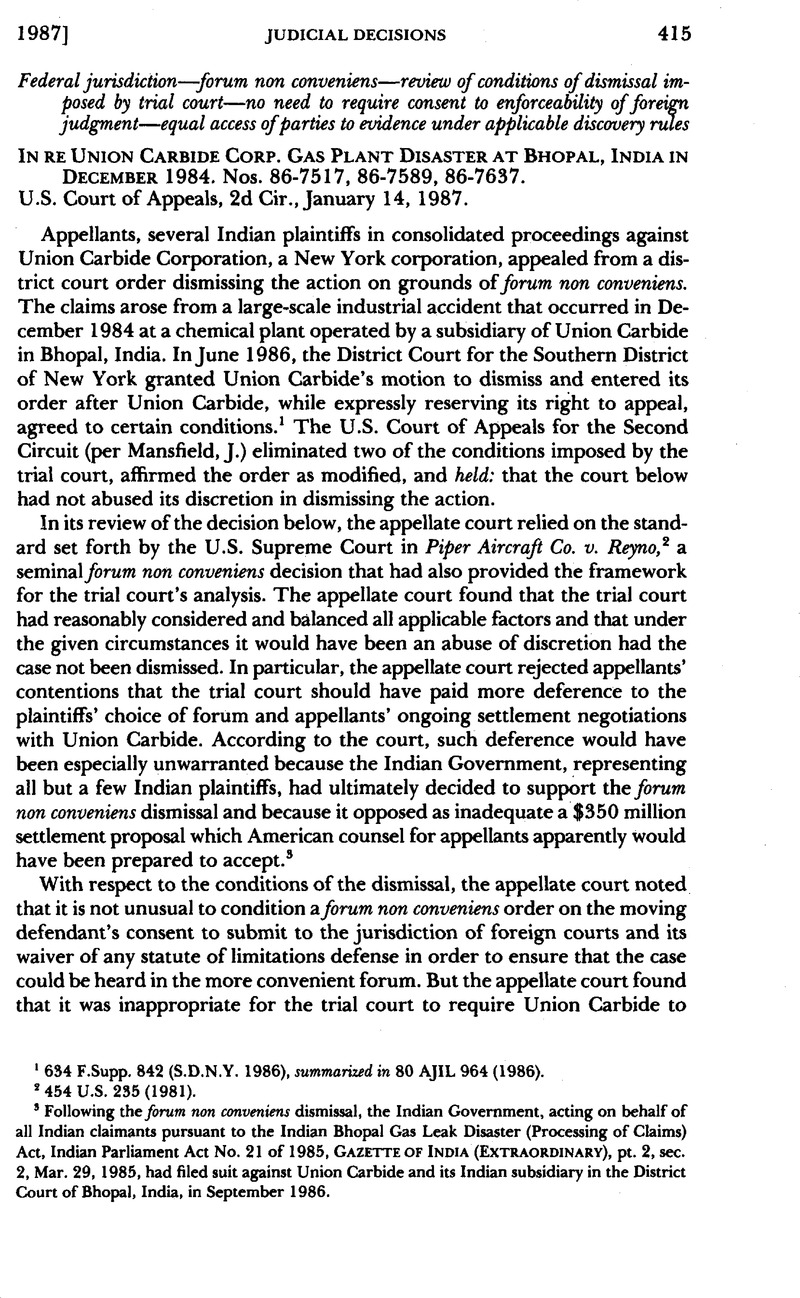No CrossRef data available.
Published online by Cambridge University Press: 27 February 2017

1 634 F.Supp. 842 (S.D.N.Y. 1986), summarized in 80 AJIL 964 (1986).
2 454 U.S. 235 (1981).
3 Following the forum non conveniens dismissal, the Indian Government, acting on behalf of all Indian claimants pursuant to the Indian Bhopal Gas Leak Disaster (Processing of Claims) Act, Indian Parliament Act No. 21 of 1985, Gazette of India (Extraordinary), pt. 2, sec. 2, Mar. 29, 1985, had filed suit against Union Carbide and its Indian subsidiary in the District Court of Bhopal, India, in September 1986.
4 634 F.Supp. at 867.
5 See N.Y. Civ. Prac. Law §§5301–5309 (McKinney 1978). The New York statute is based on the Uniform Foreign Money-Judgments Recognition Act, 13 U.L.A. 263 (1986).
6 N.Y. Civ. Prac. Law §5304(a)(1) (McKinney 1978).
7 See text at note 4 supra.
8 Nos. 86-7517, -7589, -7637, slip op. at 9. The appellate court indicated that Union Carbide seemed particularly disturbed by a temporary order that froze all of its assets and thus seriously affected Union Carbide’s operations worldwide. The Bhopal district court had issued the order shortly before oral argument in the U.S. proceedings. (This issue was redressed in November 1986 when Union Carbide agreed to establish a $3.1 billion unencumbered asset pool to ensure payment of any judgment rendered against it. The Indian Government recently disputed Union Carbide’s implementation of the November 1986 agreement.) Counsel for Union Carbide is reported, however, to have denied having intended any request for supervision, contrary to the attribution by the court. 9 Nat’l L.J., Feb. 2, 1987, at 8, col. 1.
9 Slip op. at 10.
10 Id. Because the Indian Government was sued for alleged failure to exercise adequate supervision of the operation of the Union Carbide plant in other actions pending before the Bhopal district court, the appellate court perceived the possibility that the Indian Government might become involved on both sides in the Indian proceedings against Union Carbide, which increased the importance of treating the Indian Government and Union Carbide equally.